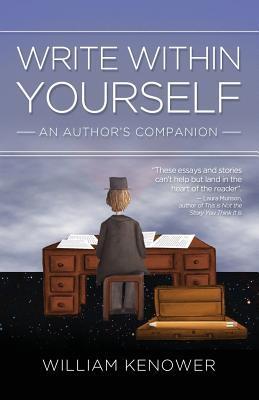Brian Mercer's Blog, page 3
December 8, 2013
Butt Time
We all know the magic of writing every day. Write a page a day — a mere two hundred and fifty words — and in a matter of months you’ll have a completed draft of your manuscript.
But if it’s so easy, why aren’t we all doing it? What is stopping us?

Is it truly a matter of finding the time or is it something more? I notice that when Life consistently intervenes to prevent me from getting that all-important butt-in-the-chair-time — what I like to call Butt Time — it’s because there is something about the writing itself that I fear.
The fear may not be apparent. It may be that the subject I’m writing about is more sensitive to relive than I consciously realize. It might be that I’m trying to write to please a perceived audience more than I’m writing something that will please me. Or it might simply be that I don’t know exactly where the story is going. Sometimes not knowing where the story is headed can be as frightening to a writer as a darkened room is to a child.
To say, “I don’t have enough time to write because ______,” (fill in the blank) is just an excuse. I think the hardest part about writing every day isn’t finding decent stretches of time. The hardest part is simply starting. The hardest part is that first step: sliding your butt in the chair, turning on your computer, opening your word processing document, and typing. If we can simply master that part, writing every day, whether it be ten words or ten pages, will become as automatic and unconscious as covering your mouth when you cough. It will simply be something you do.
I’d like to challenge everyone who reads this to pledge that, for the next six weeks, you’ll commit to writing at least one sentence a day on whatever project you’re currently working. That’s it. Just a sentence.
Of course, write more if you feel inspired. Write more if the spirit moves you. What I’m trying to get you to practice isn’t writing every day. What I’m trying to get you to practice is the start of the writing process. Sliding your butt in the chair, turning on your computer and typing.
Why six weeks? Behavioral studies tell us that if we can do something consistently for six weeks, we form a habit. Motivational speaker Brian Tracy said, “Form good habits and make them your masters.” Six weeks.
What’s stopping you? What about your writing do you fear? Please comment below. I’d love to hear from you.
This blog entry was originally published for Author Magazine 's Author Blog .
December 1, 2013
Doing It Backwards
A few weeks ago, fellow blogger Terry Persun talked about writing every day in “Creating a Discipline.” Nothing feels better than when you are “in the zone,” writing every day in such a way that your characters are talking to you. They are doing things that you didn’t anticipate, saying things that are unexpected, and you are just writing it all down.
I realized recently that I am not terribly efficient when I approach writing the next novel. At first, finding the story I want to tell is like fishing. I sink my line into the pond, feeling the story nibbling at my bait. I watch shadows moving silently through the murky waters. I know the story is down there, I just have to set the hook.

I start by “writing” every day, but it’s not really writing. I might be doing research on my setting one day, world-building the next, sketching character profiles or outlining the day after that. The process can take weeks, months even, and never in that time do I feel “in the zone.” That’s when writing every day is the hardest for me, because it doesn’t feel like I’m going anywhere.
Then at some point, I feel a tug at the end of my fishing pole and the line starts to play out. Suddenly, the story is there. I’m in the middle of it, eager to reel it in and get it safe in the boat.
When that happens, I don’t just write every day, I write every moment. I’m waking up early and writing before work. On the bus I’m pecking out sentences on my phone. On my lunch hours I’m dictating dialogue into a recorder. On weekends I wake, sit up in bed, slide my notebook computer across my lap, and start tapping keys. The need to produce is relentless.
Editing takes a little more time, but by then there have been starts and stops. Binge writing means I’ve neglected other things: house and yard work, books I wanted to read, movies I’d wanted to see, people I wanted to visit. It’s time to catch up on Life. Meanwhile the writing lurches and bumps along. By the time I’m finished, I’m exhausted. Need a break, time to regroup, to rest the soul. To go fishing again.
Now I understand that I’ve been doing it all backwards. The hardest part, the part where I’m finding the story, that’s the time when I need to binge. Have you ever tried to push a car? That first part, the part where you are just getting it going. That’s the hardest part. But once you get it moving, the car moves easier on momentum.
Writing every day is about consistency. It’s about balance. But it’s a whole lot easier when you know the story you want to tell and your characters are simply taking you along for the ride.
This blog entry was originally published for Author Magazine 's Author Blog .
November 24, 2013
Rejecting the Rejection
Back in the days when one used to query literary agents by way of the U.S. Postal Service, I used to go to great lengths to ease the blow of rejection letters. In those times, not so long ago, with every query letter you were supposed to include a SASE: Self-Addressed Stamped Envelope. This increased the chances of getting a response, usually a softly worded generic letter letting you know that your material was not right for that particular agent at this time.

Even though those form rejections had clearly been photocopied a thousand times, I never could resist the urge to search for meaning in those blanket-rejection forms, looking for some reason why my writing wasn’t good enough.
In an effort to combat this, I devised something new: a self-addressed stamped post-card with three checkboxes: ___ Send Sample Chapters, ___ Send Full-Manuscript, ___ Not Right for Us at this Time. This way there would be no agonizing interpretations of meaningless rejection prose. It was all business.
However, after enough of these little cards came back, it didn’t take long for even the sight of one in the mailbox to cause the feeling that a mule had driven its hind legs simultaneously into my gut. Or worse, a sense that I had been lanced through the heart by forge-hot steel.
It took many years to put rejection letters into perspective. A rejection letter is not saying that your writing is not good enough. It is not saying that you are not good enough. It is only saying that this particular agent isn’t the path to your success. The path is out there, this just isn’t the way. Keep looking.
There is a narrow little trail wending its way through the trees, waiting for you to discover it. It exists. You just have to to find it.
This blog entry was originally published for Author Magazine 's Author Blog .
November 17, 2013
The Unfolding
I learned about The Law of Attraction in college from listening to motivational speakers like Brian Tracy and Denis Waitely, reading Master of Life magazine, and taking meditation classes, and I’ve always taken time to write down, visualize and feel the life that I want to create.
I’ve been doing this for more than twenty-five years now and in that time I’ve experienced some startling, this-can’t-be-a-coincidence successes. Some things have manifested in a matter of minutes, others have taken years. They do unfold, though not always in ways that I expect. Okay, very rarely in ways that I expect.

Last Wednesday, downtown Seattle traffic was gridlocked when I made my way to the bus. The crowd in front of Macy’s where I catch my bus was thicker than usual, so it wasn’t surprising when I didn’t get a seat.
My bus, Bus 5, is one of those long, double-coaches, a “bendy bus,” as they say in England. At first I stood in the front coach, hands full, headphones on, listening to an audio book and trying to keep my feet as we headed up Third Avenue.
As more and more passengers entered the bus, I was forced to move back and back, eventually making my way to the rear coach. There I spotted a guy I used to work with, a guy who had left the company a couple of years ago. I wanted to say hi, but my hands were full, my headphones on, and I felt awkward having a reunion on this crowded bus.
He didn’t notice me as I stood next to his seat, engrossed as he was in a book on his Kindle. When I looked down at what he was reading, I noticed a familiar name, then a second, then a third. These were my characters. He was reading my novel.
How many times have I imagined a scenario like this, though it had always been on a plane, and the person sitting next to me a stranger. In my imaginings the book had been a book, not an eReader, and it had been the cover I recognized, not the actual writing, but it was the same moment. I’d visualized it enough to recognize it when it happened.
Okay, yes, it would have been cooler if it hadn’t been someone I’d known, though it’s unlikely that if he had been a stranger that I would have looked down to see what he was reading. I like to think that a moment like that with a stranger is coming, too. In the meantime, I’m going to put this moment in the W column.
Keep visualizing. The life you want is out there, even if it hasn’t yet manifested in real-time three-dimensional reality yet. It’s coming.
This blog entry was originally published for Author Magazine 's Author Blog .
November 11, 2013
Redefining Success
So you’ve been at it a while, haven’t you? This writing thing is something you know you are supposed to do. You feel whole and alive when the words are flowing through you. You’re pursuing your life dream and it just feels right.
Yet success has thus far eluded you. Oh, there have been triumphs. You’ve finished writing your first novel, maybe, or had an article published online. But you’re not where you want to be. Success, as you define it, has not yet manifested.

And there’s been heartbreak along the way. You’ve been rejected by agents and publishers. Someone who you love, admire, and respect has read your stuff and wasn’t impressed. Or worse, maybe they didn’t bother reading it at all.
You continue to write, of course, because you know this is what you are supposed to do. But it feels like this should be… easier. You don’t know exactly what the next step is, but you feel like it should have happened by now. You understand that this thing you are doing is supposed to work out, it just hasn’t yet.
Here are a couple of things to consider. First, you get to define success. All you have to do is acknowledge that you are successful right now, at this moment, and you are successful. Make success something in your control: “I am successful if I write a little everyday.” Whatever success is for you, put it within reach and allow yourself to take it.
Stop measuring yourself by the yardstick of others’ biographies. The success stories you hear where writers get their Big Break and become big time authors often don’t mention the years those authors spent right where you are now, practicing the craft and experiencing heartbreak.
Be patient. Allow things to unfold in their own time. Often seasoned authors are grateful they didn’t get published any sooner than they did, because they wouldn’t want their earlier writing on display. Or even worse, some of them were published too earlier and are utterly embarrassed by their initial efforts. You are learning things now and growing in ways that you cannot perceive until you have a little distance on it. There are people you are supposed to meet, circumstances to get involved in, that are on the horizon, they just haven’t happened yet. Trust that they’re coming and throw away your personal timeline.
And finally (this is the big one, trite though it might sound), don’t give up! Because, you’re right. This is what you’re supposed to be doing. This feeds your soul. In the end, that’s the best nourishment you can provide.
This blog entry was originally published for Author Magazine 's Author Blog .
November 4, 2013
Writing Full Time
Many years ago I found myself without a job. I was in my early twenties, less than two years out of college, and my parents offered to let me move back in while I found a new job and saved a little cash.
I knew restarting my career might prove challenging. The local unemployment rate had reached 7.5% and people just weren’t hiring. When I mentioned my circumstances to a friend, she suggested I look at it as a gift. “Allow yourself a little time to regroup,” she advised. “Enjoy the respite. This might be an opportunity to finish your novel.”

I had begun writing my metaphysical science fiction novel in my sophomore year of college. Having finished my term paper early that semester, I did something many people come to regret. I opened a fresh word processing document, hit CAPS LOCK, and typed, “CHAPTER 1.” I’ve been writing ever since.
It took me two summers to finish the first draft of that manuscript, but I had been writing just to get the story down on paper with little thought about grammar, spelling, or craft, and since then had been revising. All that time I’d daydreamed about what it would be like to write full time. Now I would get my chance.
It took me a few weeks to pack up my apartment, move everything in storage, and settle into my parents’ spare bedroom. I started writing on a Monday, getting up early and getting ready, exactly as if I was going to work, but instead I sat at my roll-top desk and began to type.
I wrote all day and into the evening and ended with twenty-six pages of decent material. This is amazing, I thought. I’m going to finish this bad boy in a few months!
The next day I repeated the process, but by the afternoon I was getting antsy. I found myself getting up more frequently for stretch breaks. It’s as if the energy I had put into that first twenty-six-page day had deflated me. I finished Day Two at five or six in the evening and had a respectable sixteen pages. Nothing like the performance of Day One, but not bad either.
By Day Three, the frequent stretch breaks began in the morning instead of the afternoon. By lunchtime, I couldn’t take it anymore. I needed a break. Is this what writing full time would be like? Before now, I’d either been in school, had a summer job, or both. My longest continuous writing session before this point had been four, maybe six hours, and it had always been immensely pleasurable. I’d assumed the more time I had to write, the more gratifying it would be.
What I came to learn is that the time traveling to work and school, time spent walking from place to place, and any other miscellaneous downtime had also been writing time, I just didn’t know it. Those sessions in front of the computer had merely been capturing the material when my thoughts were coalescing, when ideas for characters or dialogue or plot points were coming together in my head.
In the end, I found that I could only write eight pages a day. Anything more was unsustainable for more than a few days in a row. Writing twelve pages one day meant I could only manage four or five the next day and maybe even less the day after that.
The lesson I learned was this: It is much more productive to write a little each day, consistently over time, than to write in large chunks. Which, as it turned out, gave me plenty of time left over to find a job.
October 28, 2013
Why Am I Doing This Again?
Every year the Pacific Northwest Writers Association holds their summer writers conference at the end of July or the beginning of August. One of the many benefits of the PNWA conference is the ability to meet with literary agents from New York and points beyond. By my second writers conference, I had developed a strategy of talking to as many as three or four agents, usually all of whom would ask for sample chapters of my manuscript.

I never sent out the sample chapters right away. My thinking was — correctly or incorrectly — that everyone who the agents met at the conference would likely be sending in their writing samples in the days following the conference. Maybe if I waited a week or two, I thought, I might avoid the big post-conference pile. By the end of August, though, all my requested materials would be in the hands of the agents and the waiting would begin.
Every year September would be a month of Hope, capital “H”. These weren’t just sample chapters sent out with blind query letters. I had met these agents, pitched my project, and the words of enthusiasm they spoke sparked the inevitable daydreams of landing representation.
September inevitably would pass, October would creep in, and one by one the crushing rejections would come, killing off each parcel of Hope corresponding with each agent packet I’d mailed. Eventually, there were no more queries left unanswered and the bone-crushing sense of defeat seeped in, defeat made all the worse by the weeks of optimistic fantasies that had preceded it.
Perhaps my toughest rejection came after one of my most dramatic agent encounters. I’d just pitched my novel in a one-on-one agent appointment and she’d loved the idea. Looking furtively from side to side, she bent closer and whispered. “I never do this but… Do you have any sample chapters with you?”
By some crazy miracle, I did have a few sample chapters. Every year I printed out sample chapters “just in case,” but I always felt foolish at the end of the conference when those sample chapters remained untouched in my briefcase. Of course agents aren’t going to ask for sample chapters! They tell you as much at the conference. The agents have to fly back to New York. The last thing they want is to lug around piles of paper. That year I almost hadn’t bothered printing anything. Almost.
I surreptitiously slipped the agent my pages as if a drug deal was going down. That, along with samples to four other agents I met at the conference, made me feel success was only steps away.
That September I traveled to London. For ten days I walked and walked. Kensington High Street. Kensington Garden. Hyde Park. Oxford Street. Trafalgar Square. Oxford Street. Covent Garden. Soho. The Theater District. And with all that walking came thinking. Even though I knew it was folly, I daydreamed of book deals, cover art, book signings. It’s positive visualization, right? What is wrong with that?
The final rejection came in the middle of October. (I do miss the days when rejection letters came in your physical mail box, when at least you could mentally prepare for their arrival.) I was in a restaurant having lunch with my parents, who were visiting Seattle, when the email reached me. It was from the agent who had taken my chapters at the one-on-one meeting. Two months had passed and by then I’d guessed the outcome. But Hope was strong. What made it worse was that I couldn’t do what I really wanted to do, which was slump under the table and curl into a fetal position. That would have been, I don’t know, awkward.
That day, like I did every year when the last PNWA conference rejection came, I asked myself: Why am I doing this again? Is this really worth all the pain?
I’d think about all the countless hours I’d spent writing and think, Why? Why am I torturing myself? Am I just wasting my time?
So I quit writing. Then what? I’d mentally projected ahead five, ten, twenty years into the future, when I’d realized there was something missing in my life. An emptiness that would at first be unrecognizable until I realized… Writing! I haven’t been writing. I must start writing again!
Then I’d think back on all those imagined years that I hadn’t been writing, years wasted! I’d be sick to my stomach with grief at the lost opportunity. Why had I given up? Because a handful of agents hadn’t taken me on as one of their clients? That didn’t mean my writing sucked. It didn’t mean what I was doing wasn’t worth while. It meant that those agents weren’t part of the path to my success.
Then I’d be back in the moment, still heartbroken by the recent rejection, but understanding that, in the end, I’d feel worse if I stopped writing than if I persevered through the pain. There was a moment in every successful author’s journey when they were not a successful author. They eventually made it because they performed through the pain.
October 21, 2013
When the Well Runs Dry - Part 2
Last week in Part 1 of “When the Well Runs Dry,” I explored the cause of why sometimes your writing might not feel inspired. I conclude that the reason you might not feel passionate about what you’re writing is that you’re too conscious of your audience and not focused enough on what will please you. To combat this, I recommend giving yourself permission to write what you want to write. When you care about what you’re writing, that feeling of inspiration will return, and that sense of emotion will carry through to your readers.

For some of you, simply giving yourself permission to write what interests you will be enough to find that inner voice. Sometimes it takes more.
For me, writing has grown more difficult now that I have a published novel out there. Now that I have readers, I find myself growing more self-conscious about pleasing my audience and less about what is important to me.
An invaluable resource for me has been the book Write Within Yourself: An Author’s Companion, penned by Author Magazine’s own editor-in-chief, Bill Kenower. Far from a how-to manual, it’s a book of two-page essays that make you think not just about why you’re writing, but why you’re here, and how much of who we are is reflected in what we choose to write and how we approach it.
Having interviewed hundreds of authors, Kenower writes not only from his own perspective but from the perspective of the authors he’s met. In “Practically Done,” Kenower writes, “Life can appear to be divided in two: that which you must do, and that which you want to do. The musts are certain; the wants are optional.”
He goes on to say that there will always be something else you must do. When a friend points out that it would be more practical to write books like John Grisham, make a pile of money, and then write the books you want to write, Kenower points out the impracticality of doing things one doesn’t want to do, writing things one doesn’t want to write. “I usually can [do those things] for a time,” he says, “until the tension between where I want to go and where I am telling myself I must go becomes so great that something snaps and I must start again.”
I keep a copy of Write Within Yourself at my desk and start my writing day by turning to a random page and reading whatever essay falls under my eye. The book is my daily reminder that in order to be true to my readers, I must be true to my own passions.
Write Within Yourself is not a guide, but a companion. A guide will tell you where to go. As a writer, only you can know that. A good companion, however, can remind you that forgetting where you want to go is different from not knowing where you want to go. Author William Kenower believes that what it takes to write the book you most want to write is also what it takes to lead the life you most want to live. This collection of essays serves as a companion for those times when you need inspiration. Write Within Yourself will help you stay connected to the writer and the life within you.
This blog entry was originally published for Author Magazine 's Author Blog .




